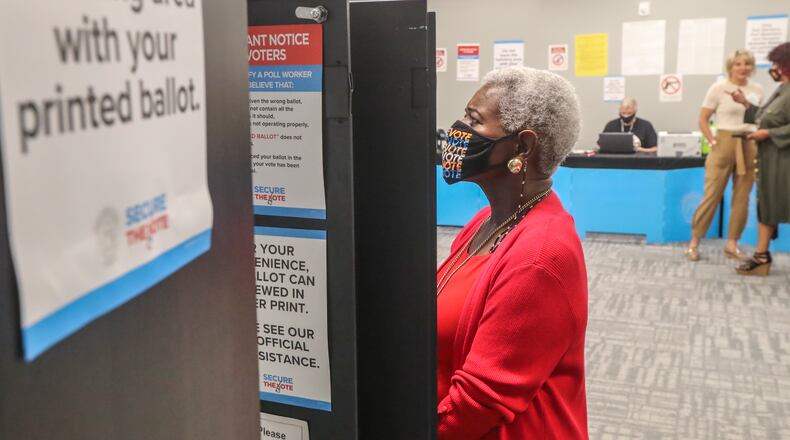During the general election in 2021 — where both the mayor and all City Council seats were up for grabs — a little over 70,000 Atlantans cast ballots in each of the races to fill the three citywide positions on council.
That’s compared to the hundreds of thousands of city voters that made their way to the ballot box in 2020 to decide on the country’ president and key U.S. Senate and House races.
Candidates for the vacant citywide seat up for grabs this November find themselves in a unique position, where turnout for the down ballot race will likely see a significant jump in participation due to the highly-watched presidential contest between Donald Trump and Vice President Kamala Harris.
But that means council hopefuls need to tap into engaged presidential voters — even some who may usually skip down ballot races altogether.
“From a campaign perspective, you have got to be trying to talk to a lot more people,” Atlanta City Council President Doug Shipman said, adding that candidates face the challenge of engaging with voters who aren’t familiar with City Council and encouraging Atlantans not to skip local contests.
“It makes it a lot more complex than just a normal council campaign,” he said.
The difference in turnout numbers will likely be even more drastic in a runoff if no council candidate successfully wins a majority of votes — taking ballots cast from hundreds of thousands in November to likely only a small fraction of that during a runoff weeks later.
“You have the potential to go from a presidential turnout to a few thousand of votes determining that runoff election,” Shipman said. “And the question, of course, is which of the two candidates who are left in the runoff can turn out their base of voters?”
---
Credit: Ben Gray for the AJC
Credit: Ben Gray for the AJC
A new contract between the city and the Policing Alternatives Diversion Initiative (PAD) is still in limbo after City Council members decided to hold legislation approving the program again last month.
A crisis response agency that helps keep struggling Atlantans out of the criminal justice system is funded in part by the city, went months without payment as elected officials reviewed the details of a new agreement. But despite passing legislation to fill the funding gap, council members have yet to OK the deal.
PAD was established in 2017 and provides community-based services to individuals experiencing extreme poverty, substance use or mental health problems in an effort to prevent them from being arrested.
“We’re here not only to alleviate the pressure and the call volume on APD, but we can also respond in a way that traditional responders can’t,” said Kayla Smith, a community engagement and training manager with the nonprofit. “If (PAD) ceased to exist tomorrow, do you all know how many people’s lives would be negatively impacted? You might not, but we do.”
Atlanta’s Chief Finance Officer Mohamed Balla said the legislation that passed by council will fund PAD through the end of the calendar year.
“There’s some additional questions that needed to be answered, and some additional philosophy about what diversion services are needed by the city going forward,” he said of the stalled contract.
---
Got tips, tricks or just want to say hello? Email me at riley.bunch@ajc.com.
Credit: Miguel Martinez
Credit: Miguel Martinez
About the Author
Keep Reading
The Latest
Featured




